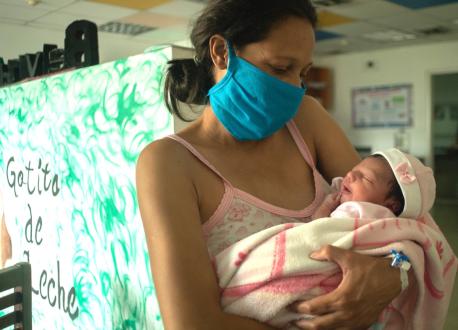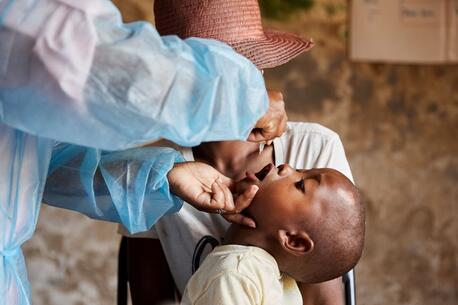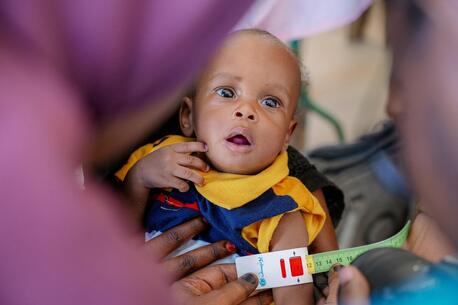
Helping Mothers Breastfeed to Give Every Baby the Best Start in Life
Breastfeeding is natural, but it isn't always easy. That's why UNICEF and the World Health Organization are calling on governments to allocate increased resources to protect, promote and support breastfeeding policies and programs, especially for the most vulnerable living in emergency settings. In the U.S., this includes supporting the bipartisan Reach Every Mother and Child Act.
Babies who start nursing within an hour after birth, breastfeed exclusively for six months and continue for up to two years receive natural protection from all forms of child malnutrition, including wasting and obesity. And for families living through crisis, breastfeeding can be a lifesaver.
A solid investment in the health of children, moms and the planet
"During emergencies, including those in Afghanistan, Yemen, Ukraine, the Horn of Africa and the Sahel, breastfeeding guarantees a safe, nutritious and accessible food source for babies and young children," UNICEF Executive Director Catherine Russell and WHO Director-General Dr. Tedros Adhanom Ghebreyesus said in a joint statement. Breastfeeding is "more important than ever," they added, "not just for protecting our planet as the ultimate natural, sustainable, first food system, but also for the survival, growth and development of millions of infants."
Breast milk is the best form of nutrition for babies, but it's more than a meal: it can give newborns the boost they need to fight off infection. It's a baby's first vaccine, offering protection from many childhood illnesses. Women who receive skilled counseling from lactation consultants, health care professionals or peer support providers are more likely to start and continue breastfeeding. Above, a UNICEF-supported midwife shows a mother best breastfeeding practices at Kasanda Health Center in central Uganda. © UNICEF/UNI353032/Abdul

Breastfeeding after birth gives babies the best possible start in life. It's also part of a sustainable food system. Breast milk is the perfect food: it's always clean, and always the right temperature for breastfeeding babies. Above, UNICEF-supported nutritionist Dessy Sandra Dewi and colleagues make their way down a steep path to visit breastfeeding mothers in their homes in Paseban Village, Bayat, Klaten, Indonesia. © UNICEF/UNI347326/Ijazah
In Yako, Burkina Faso, 38-year-old Zalissa, above, gave her older children water and solid food when they were infants, which led to health problems and malnutrition. At UNICEF workshops, the mother of eight learned that exclusive breastfeeding is best for the first six months of a baby's life. "Thanks to the workshops, I am convinced that my son Loukman will grow well and that he will succeed in life," she says." I am happy that my son is healthy."

Breastfeeding after birth also provides emotional benefits for babies and mothers. It reduces stress for nursing mothers, and breastfed babies are calmer and cry less overall. Above, Fiona, a working mother in China, managed to breastfeed her baby for 28 months, with the support of her family along with UNICEF and partners. © UNICEF/China/Jerry Liu
TOP PHOTO: A new mother holds her baby, sleepy and full of breast milk, at a UNICEF-supported breastfeeding workshop at a health center in Caracas, Venezuela. © UNICEF/UNI343511/Pocaterra
HOW TO HELP
There are many ways to make a difference
War, famine, poverty, natural disasters — threats to the world's children keep coming. But UNICEF won't stop working to keep children healthy and safe.
UNICEF works in over 190 countries and territories — more places than any other children's organization. UNICEF has the world's largest humanitarian warehouse and, when disaster strikes, can get supplies almost anywhere within 72 hours. Constantly innovating, always advocating for a better world for children, UNICEF works to ensure that every child can grow up healthy, educated, protected and respected.
Would you like to help give all children the opportunity to reach their full potential? There are many ways to get involved.





